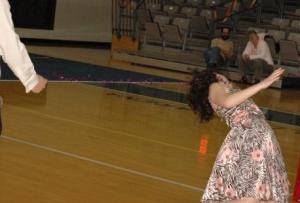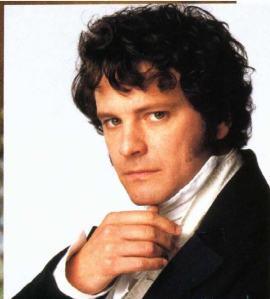I apologize for the lack of posts in recent weeks. Hopefully you’re still reading.
I also apologize for the monster length of this post. I think it’s the result of weeks of pent-up, then messily unpenned (bad writing pun) tension. I’ve barely had the stretch of two uncluttered hours to put pen to paper, let alone fingers to keyboard.
And that’s because things are changing quickly in my life. Again.
Just in time for the anniversary of my father’s slow demise, I’m once again off to start—or restart–my life.
I think the shift started with the tectonic influence of my mother, a.k.a. Mara, who has been voicing for months now her complaints about my job at the restaurant: its hours, its lack of weekends, the way that my bosses have made unrighteous overusage of my helper-caregiver nature during times of economic distress (“Abbie, can you handle serving the entire restaurant on a Sunday night by yourself? We don’t have the money to hire another server right now.” “Uh, sure, I guess.” ::Cue the anxiety attack::). It hasn’t made living at home pleasant, and going to work is even less so.

Ruth can limbo really, really well when she has a stick to knock her head on. And a white tiger-print dress helps, too.
So I made up my mind to allow myself to start looking at other jobs. That was step one, which I took around the time of my last post. Then I made myself stay up later so I could apply for other jobs online—and this step happened about two weeks ago. This week, I fell into the we’ll-call-you/interview-you-soon-so-stay-tuned stage, which is like playing limbo without any stick to tell you how far to bend while you try to continue on with your regularly scheduled days.
And on the night of the 19th, or really, the early morning of the 20th, I decided to simply quit; to allow myself to just have-it-up-to-here with the hassle of working on back-pay (still no paycheck: this is week two), having no weekends (and hence, almost no dating), working heavy shifts by myself, and being responsible for far more restaurant-running than I was ever contracted to be.
I wasn’t at work when I decided this; I was actually out with one of my old gal pals in the middle of a screaming, writhing, hysterical crowd of well over 200 people crammed into a movie theatre (out of a full 1,200 or so total in the whole building). At midnight. Awaiting the second coming–of the next installment of the Twilight Saga1, not Jesus Christ. But for all the anticipation in the air, you might have thought that we’d gathered there for that.
And I knew, while I was sitting there between groups of babbling fifteenish-year-old and forty-something women, that I was being BAD. Very bad.
I’d not only worked a full double-shift at the restaurant earlier that day, but I knew I was going to have to work the double-shift the next day, which was a Friday, and to top it off, would be a night when live musicians were coming to the restaurant. I should have been home, sleeping under the fog of sedatives, preparing myself mentally for the coming equivalent of waitressing hell—handling six or seven tables at once, managing chef s’ delays, pacifying upset customers, and making bad tips in spite of how hard I try to make everyone happy—but instead, I was out watching a teenage girl’s epic love drama unfurl itself on the big screen in the wee hours of the morning.
And I couldn’t really regret it; I couldn’t even regret going out for a drink beforehand. And I felt actually sort of mad that I was going to have to sacrifice a lot the next day in terms of sleeplessness and exhaustion to pay for one night of fun with a friend for the first time in nearly a month of working six and seven days a week—no weekends. I was seething over the loss of autonomy. I was angry—truly angry—about being caged in a lifestyle that wouldn’t suit a hamster. It was that anger, I think, that sharpened my focus and brought me to the conclusion that my vocation had to change.

Bella (Kristen Stewart) tries to connect with her reflection in a dream sequence that forces her to face facts about herself in “New Moon.” Edward (Rob) stands beside her looking pretty as a dream in a period coat.
And as I watched the film, I relearned some things about myself. Ultimately, I remembered that I had no one to be angry at for my circumstances except for myself. As Edward Cullen commented, it was Romeo who “destroyed his own happiness” in his personal tragedy; he had no one else to blame. I decided that I didn’t want to be a tragic literary cliché—so I needed to quit acting like one.
And I was grateful for the emo soundtrack, the dark, depressive facials of Kristen Stewart’s Bella, the self-deprecating sadness of Robert Pattinson’s Edward, the spunky, no-nonsense attitude and protective friendship of Ashley Greene’s Alice, and the fursplosive (furry + explosive) tempers of the werewolves. It felt like one massive cathartic experience. As an audience, we collectively sighed, cried, gasped, laughed, raged, cringed, and felt that curious relief of knowing that, in spite of the strange and unfulfilling ending of this particular book (New Moon is book two of the saga), the ultimate ending for all involved will be happy.
This seems counter-intuitive, but I love it when movies wake us up to the world of real life. I love it when they remind us of our part in the God-authored stories we inhabit, stories that are complex, difficult, and sometimes frightening, but that God promises us will at least end well. I guess the experience restored my faith a little.
So, when my gal pal and I walked out of the theatre at 2:30 AM, only to discover that her car’s battery was dead, we felt no real sense of panic. She called AAA, we returned to the bar from whence we’d started our evening to await our rescue, and we re-encountered the bartender who had flirted so assiduously with me some hours before (he’d brought me a whole bowl of cherries for my Long Island; apparently he’d been staring a me while I used a straw to chase down the lonely cherry in my glass and then decided he liked the combination of me eating cherries enough to bring me a bowl). We talked to him and discovered that, lo and behold, he was not only a neighbor of mine, but that he was competent with jumper cables. He had us safely on our way by 3 AM. Since it was a chance meeting in the first place that led to our deeper acquaintance with him, I felt like we’d experienced nothing short of a miracle in his act of chivalrous assistance.
Ah, real-world heroes. They’re better than vampire-heroes anyday (sort of). At least, they deserve a nice kiss on the cheek, if not a bite or two (okay, there was no biting, I promise). What a nice ending to our Twilight Night!
So, now I’m off on another adventure of sorts. When all of the counselors in my life back up my instincts when they tell me that it’s time to move on from somewhere, I take that as God’s voice projecting through the mind and the people he’s entrusted to care about me. My allotted stint at the restaurant is over, and in good time. I’m going back on the job market, this time looking for a position that has a little upward mobility, maybe benefits, and most of all, God’s stamp of direction. I’ll have my days free to actively pursue other job opportunities, to visit much-neglected friends, and to also have the requisite downtime required to handle the heavy emotional turmoil of the holiday season caused by my bereavement. November 13th marked the anniversary of my dad’s “death sentence”–the day when the doctors told him there was nothing left to do but wait for his body to give in to the cancer. The rest of this holiday season is going to be a landmine of emotional memory triggers from my father’s death, which means I’m going to be doing some heavy grief work in the days to come on top of my job-searching. Wish me luck.
-Ruth
Notes (Skippable unless you’re a Twihard):
- “The Twilight Saga: New Moon” beat the opening-weekend records for the Harry Potter films, and it even killed the all-time opening-night record previously held by “The Dark Knight.” This just proves that women are a powerful economic group. Current stats have the audience for the films as being 80% female, 50% of whom are under the age of eighteen, with the other 50% being made up of twenty-somethings and Twimoms. http://movies.yahoo.com/news/movies.ap.org/new-moon-wolfs-down-1407m-opening-weekend-ap The movie is now the #1 film in the world for this whole year. Yeah. I know. Crazy.








